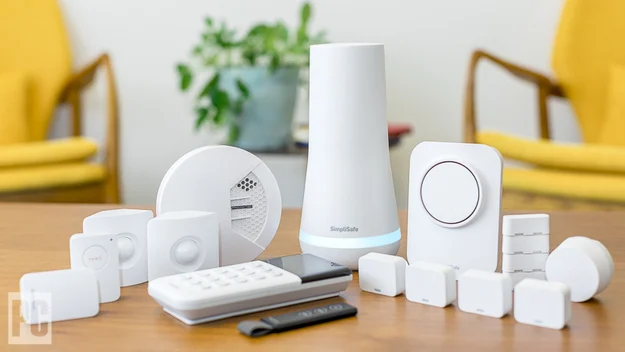Wireless systems utilize radio frequency signals to connect with the controller while wired systems utilize landlines. Both have advantages and disadvantages, so it’s crucial to pick the best system for your requirements.
Wireless security systems for homes are becoming more popular due to the fact that they’re less difficult to install and can be utilized for any kind of home. But, they’re also more expensive than wired security systems and are susceptible to interference by other wireless devices in the home.
Home security systems that are wired are cheaper than wireless vivint security systems, however, they’re more difficult to install as they require wiring through walls. Wireless systems have a higher degree of reliability since there’s no chance of interfering with other gadgets within the home.


Wireless or wired?
The choice between a wired as well as wired system for home security is a private choice. The pros and cons are there for both kinds of security systems.
Security systems that are wireless are generally simpler to set up than wired systems. They are also less likely to be damaged in the event of an outage of power because they don’t depend on power to run. Wireless systems can expand easily in the event that you’re required to add more cameras or sensors at a later time.
Wireless security systems are typically better than wireless ones because they aren’t susceptible to interference from Bluetooth signals , or the other electronics within your home. They are also easier to fix any issues that arise with the system. The downside is that wired system tend to be more costly and complicated to installand are not as adaptable than wireless systems in the case of growing the system’s capabilities in the future.
What are the advantages and disadvantages of a Wired System?
A wired home security system comes with many advantages over wireless systems. First, a wired security system is more difficult for intruders to disable. A burglar would have to physically cut wires in order to disarm the device, and this is far more complicated as opposed to simply deactivating wireless transmitters. Additionally, a wired device is more susceptible to interference than wireless systems. Wireless systems are often interfered in the home by electronic gadgets that are in the home, for example microwave ovens and cordless phones. A wired system is more robust than wireless systems. Wireless systems can be affected by battery failure, while wired systems are able to operate even when the power is cut off.
There are some drawbacks to having a wired security system in addition. It is, for one, more expensive and difficult to set up as opposed to a wireless one. In addition, if the wires aren’t concealed it is possible for them to be broken by an intrusion. In the event of an outage in power the entire system will be shut down until the power is restored.
How do you install a home Security System
Installing a security system for your home could be an overwhelming task but it doesn’t need to be! There are two kinds of home security systems that are wireless and wired. Each has its own advantages and drawbacks, which is why it is important to pick the best one that meets your requirements.
Wireless security systems are frequently employed in older houses. They are generally easier to set up than wireless ones, however they’re more difficult to fix when something goes wrong. Wireless systems require a professional installation, which may make the system more expensive overall.
The use of wireless security is becoming more popular in more modern homes. They are generally easier to set up as well as maintain than wired systems and offer greater flexibility when it comes to the location of sensors and other parts. Although, wireless devices could be more costly than wired systems and might not work with all home automation devices.
Conclusion
It is crucial to select the most appropriate home security system that meets your requirements. This involves looking at both wired and wireless alternatives. Both have advantages and disadvantages, so it’s essential to conduct research prior to making a final decision. We hope that this article given you a better understanding of the difference between wired and wireless security systems for your home and gave you some thoughts to think about when you decide.


